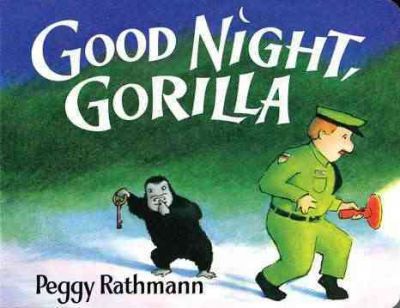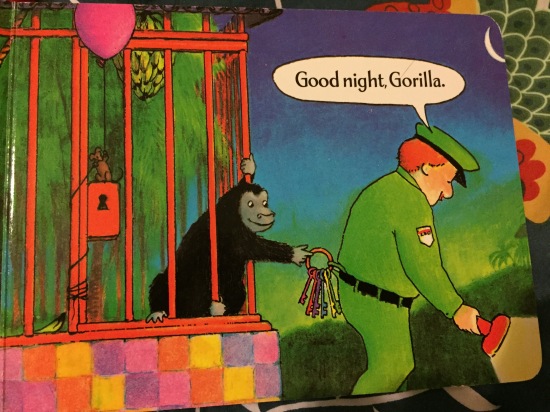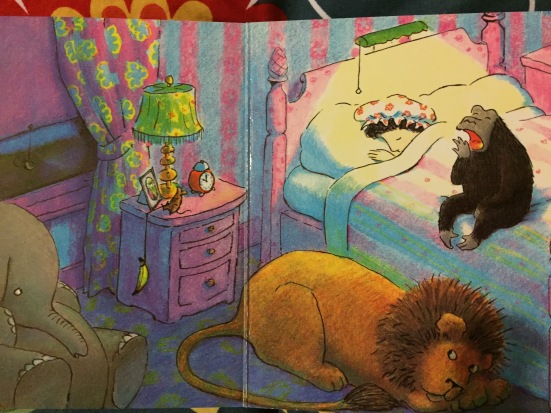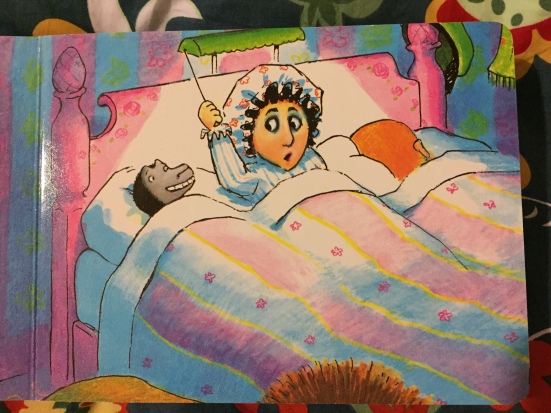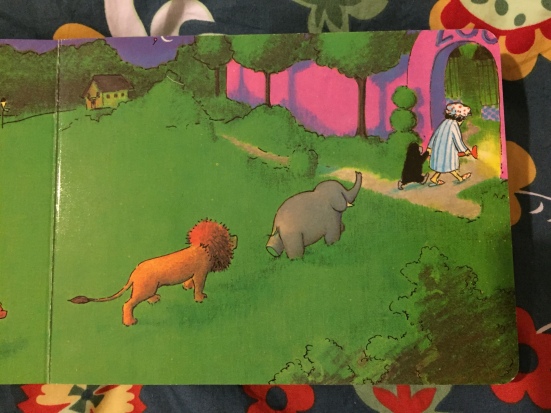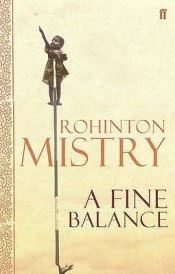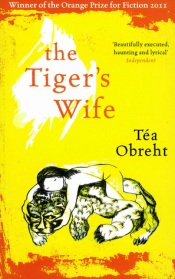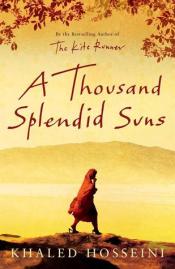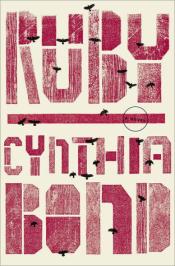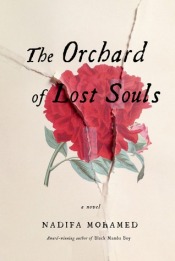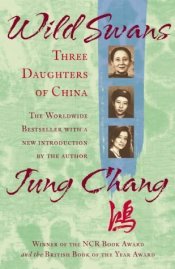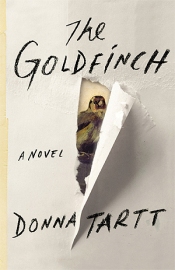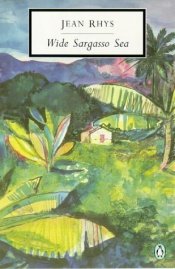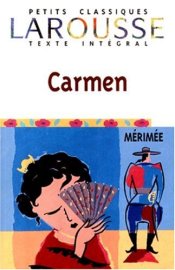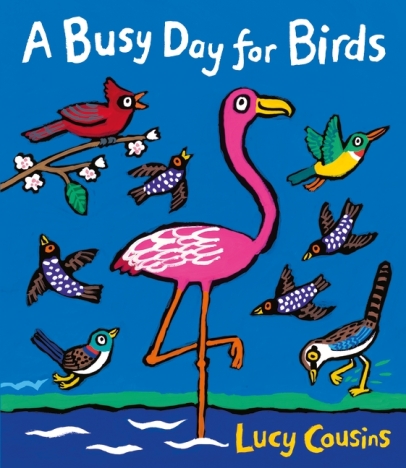
I think it goes without saying that for most avid readers, myself including, reading to and collecting books for your children simply comes as a natural, joyful extension of parenting and that, rather than being a chore you do for fear of them growing up without a soul, you actually enjoy and throw yourself (and your silly voices) wholeheartedly into.
There does, however, frequently arise the situation where you are simply too jaded to pull out your best performance and it is in this scenario where the finest children’ books are discovered, the books that need no embellishment from tired parents since they really do speak for themselves.
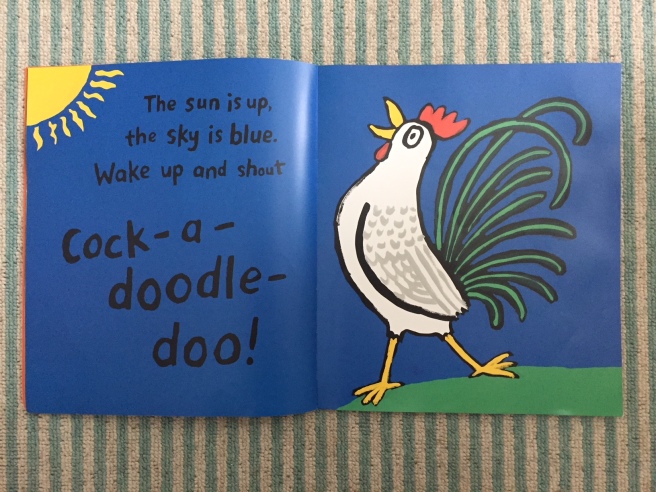 Standing on the firm foundations of her wonderful Maisy back catalogue, Lucy Cousins is always a safe bet and A Busy Day for Birds is no exception. Brightly coloured, striking illustrations of every bird you ever thought of keeps your child hooked, with the addition of some lovely entertaining sound effects and an opportunity for them to leap around and copy the hopping/flapping/swooping if they’re that way inclined.
Standing on the firm foundations of her wonderful Maisy back catalogue, Lucy Cousins is always a safe bet and A Busy Day for Birds is no exception. Brightly coloured, striking illustrations of every bird you ever thought of keeps your child hooked, with the addition of some lovely entertaining sound effects and an opportunity for them to leap around and copy the hopping/flapping/swooping if they’re that way inclined.
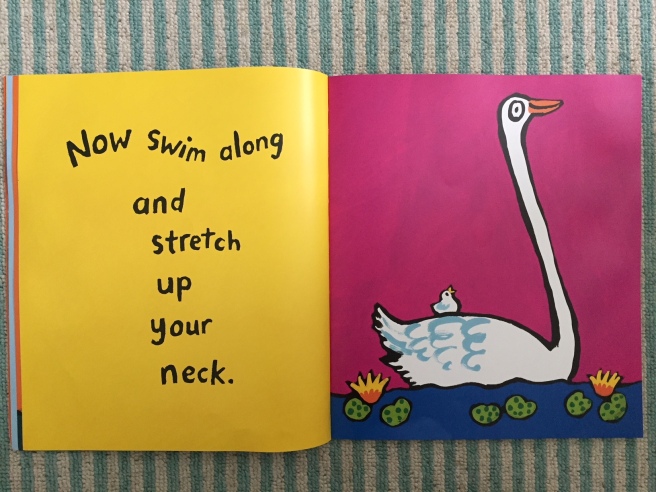
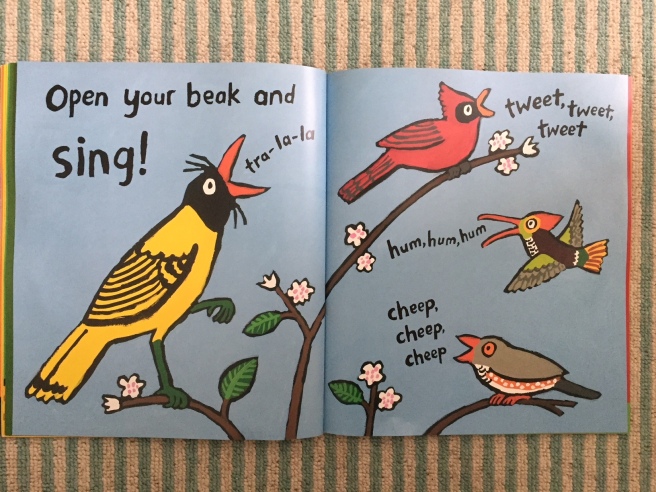
Animals are a no-brainer when it comes to children’s books but I particularly love this one for focusing on birds, who often get overlooked (apart from all the ducks and chickens) when it comes to toddlers’ books and toys. There are so many of them after all, how wonderful to try and teach them the difference between just a few – with any luck laying the groundwork for some more serious, Packham-style interest in the world around them when they get a little older.
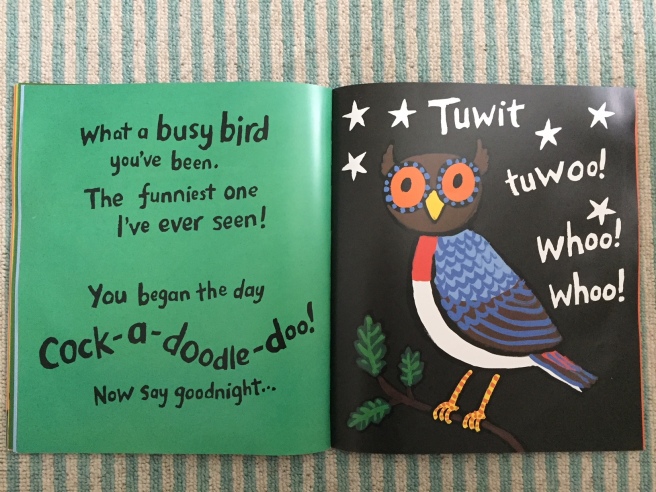 And, if all of this action and rhyming fun wasn’t quite enough and this is the only book you have to hand for bedtime, we end with a lovely owl to calm things down. Thankyou, yet again, Lucy Cousins.
And, if all of this action and rhyming fun wasn’t quite enough and this is the only book you have to hand for bedtime, we end with a lovely owl to calm things down. Thankyou, yet again, Lucy Cousins.

